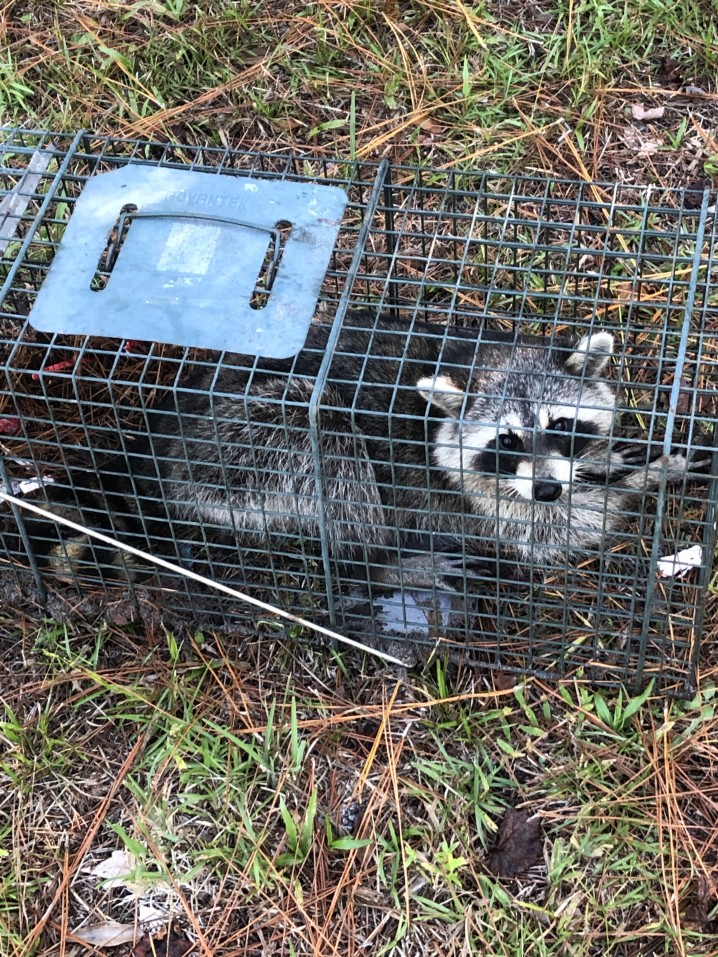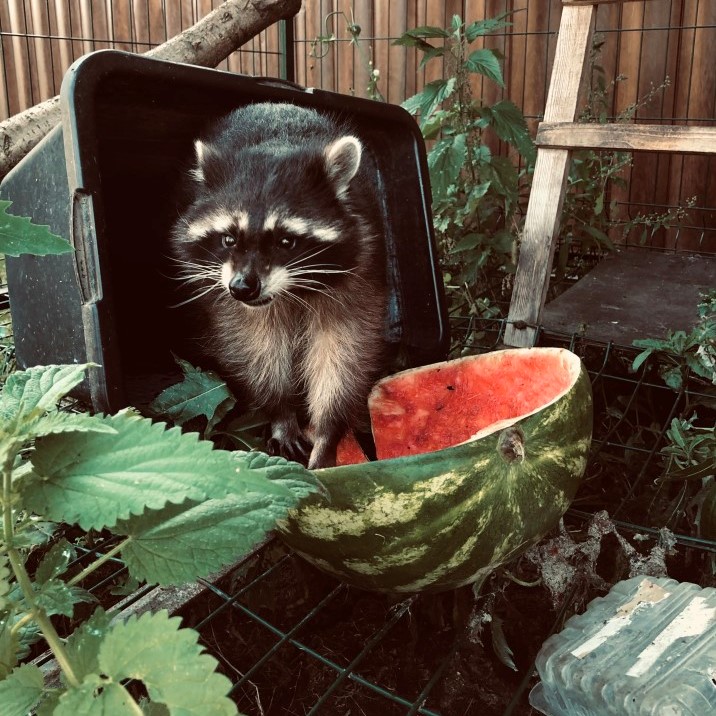
July 23, 2022
A Raccoon Won’t Go In Trap? Here’s What To Do
Raccoons can be a true nuisance when they invade your property. If you spot a raccoon, or several of them, they may be there because they intend to forage in your garbage cans and cause destruction all over.
Keep in mind that raccoons are intelligent and resourceful animals. They can be also dangerous for people and pets as they tend to carry various diseases such as rabies.
Keep reading for more information on how you can outsmart a raccoon, trap it, and get rid of it from your property. But before you indulge in trapping these animals, check your state’s law if it is legal to trap a raccoon by yourself.
Can A Raccoon Outsmart A Trap?
It can be a real challenge to trap a smart raccoon. This wildlife is not stupid and will often outsmart and escape the trap. The raccoon may be already familiar with the trap and know it better. It might have been caught in traps before and will learn from that experience. Next time, the raccoon you’re after will avoid your trap and all traps altogether later on.
So don’t be surprised if the animal outsmarts your trap, shows up, and raids the trap without getting caught.

How Do You Trap A Smart Raccoon?
Having said that, there are ways to trap a smart raccoon.
First, you must be aware that raccoons are nocturnal in nature, which means they are mostly active at night. They usually sleep during the day and stay up all night foraging for food. As soon as the sun sets in, these animals leave their dens and head straight for the nearest food source.
It’s important to place your trap far away from any human or pet activity. So put the trap along the edge of your yard, beside physical boundaries such as the fence or dense vegetation.
Then just wait for the raccoon to come out of its hiding.
Know that if this is a smart raccoon, it won’t go into the trap immediately after placement. It will perceive the trap as a threat and can also sense if the trap is brand new and hasn’t been used for any other animal before. It’s better to wait a bit and give the animal some time to get familiar with the trap, before setting it right away.
It can also happen that the raccoon keeps stealing bait from the trap. In this case, a better quality trap that secures the bait will be needed. These clever animals can easily detect a trap and will quickly snatch bait from the trap.
Also, it’s worth mentioning that despite its big body, a raccoon can squeeze through an opening that’s only 4 inches wide.

What Is Good Bait For Trapping Raccoons?
There are some foods that are irresistible to raccoons and you may use those as good bait to lure a raccoon into your trap.
Fatty meats and sweet foods are some of the best baits you can place in a live trap when you want to catch a nuisance raccoon. Bacon attracts these animals really well. Fresh ripe fruit, candy, marshmallows, molasses, strawberry sugar wafers, as well as sugar or honey-coated vegetables will definitely catch the raccoon’s attention.
Some other popular baits that have been very effective on raccoons include canned cat food that is wet and smelly.
Another bait option is food that is the preferred raccoon diet, such as fish, snails, frogs, crayfish, and clams.
Canned tuna, sardines, or salmon packed in oil are also good bait for trapping raccoons.
In addition, whole eggs, white bread, chicken meat, sweet corn on the cob, and nuts make great bait for raccoons.
These are the foods that raccoons like to eat the most, but in fairness, they will eat nearly anything else. After all, they are known for digging through people’s bins in search of their next meal.
Place your chosen food items behind the pan of the cage trap. Then, sprinkle some of the sweet juice around so that it leads the animal straight to your trap.
After you set your live trap, you must remember to check it often, at least once a day. This is to make sure the animal that’s caught doesn’t die inside the trap. It can take anywhere from a couple of hours up to a few days to catch a raccoon that’s smart and won’t go in the trap. Under no circumstances leave a raccoon trapped for an extended period of time such as longer than 24 hours.
If any other non-target animal has accidentally been captured, you should release it immediately. Once you have caught a raccoon in your trap, check with your local authorities to find out the correct way to relocate the animal.
Also, do not handle a trapped raccoon with your bare hands. The wild animal can be dangerous to humans. You are going to be exposed to the diseases they carry, they may attack you or run away.
The best option would be to call a wildlife removal expert to handle your case.
If you are experiencing raccoon problems in your yard, contact our Westchester Wildlife team in Westchester, Dutchess, or Putnam County, NY, or in Fairfield County, CT. We are your local wildlife control specialists that handle all types of nuisance wildlife. So if you have raccoons invading your property, call us to learn more about your trapping and removal options.
